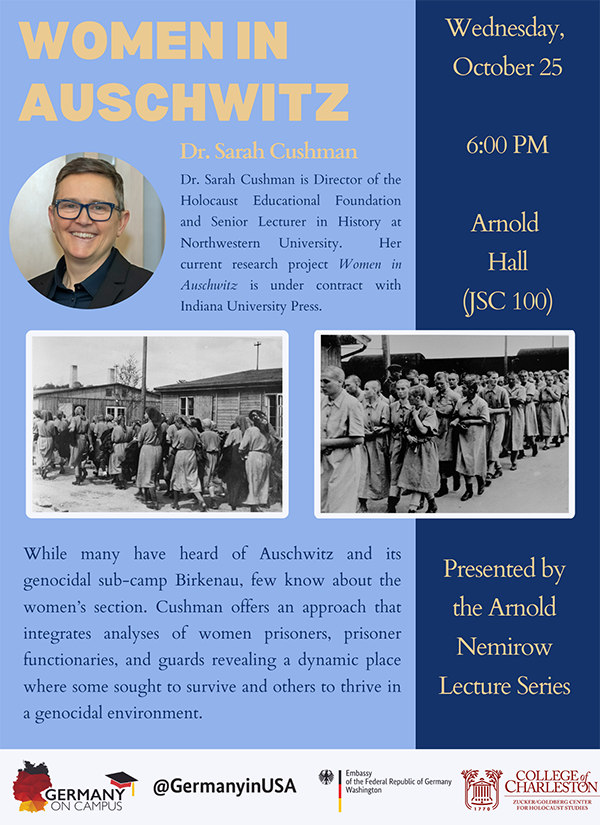Events
Lecture by Father Patrick Desbois| Photo credit: Chad Gibbs
96 Wentworth Street
Charleston, SC 29424 United States
Complimentary brunch will be served at 9:00 AM; the lecture will begin at 10:00 AM.
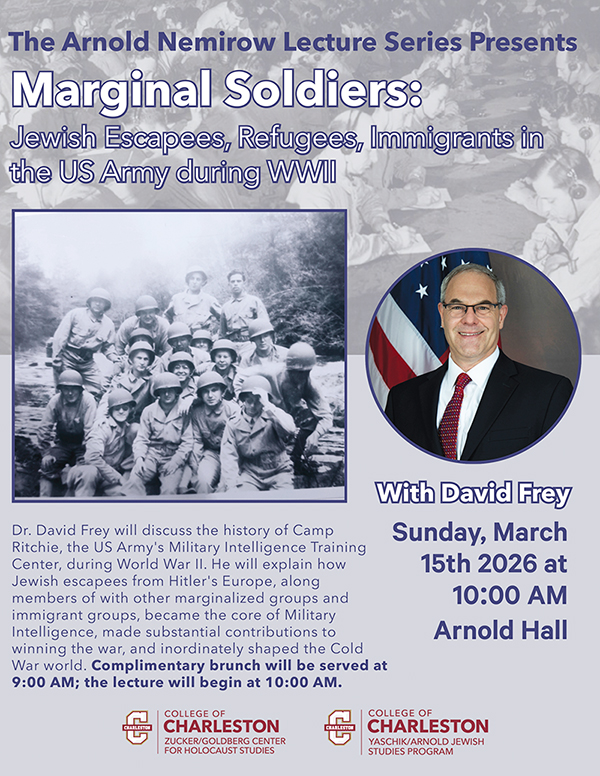
Mosse-Zucker/Goldberg New Book Webinar: Zoom presentation by Professor Chad Gibbs, with comment by Professor Jacob Flaws, Kean University.
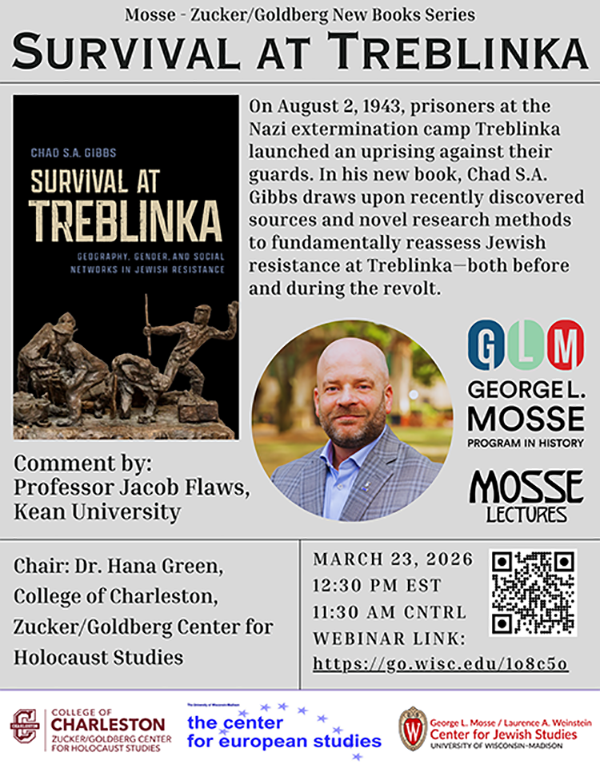
96 Wentworth Street
Charleston, SC 29424 United States
Join us for an exploration of the German student resistance group, the White Rose. Laura Ashley Braford of Clark University will discuss the origins of th group, their actions against the Nazis, and their surprising ties to the Lowcountry.
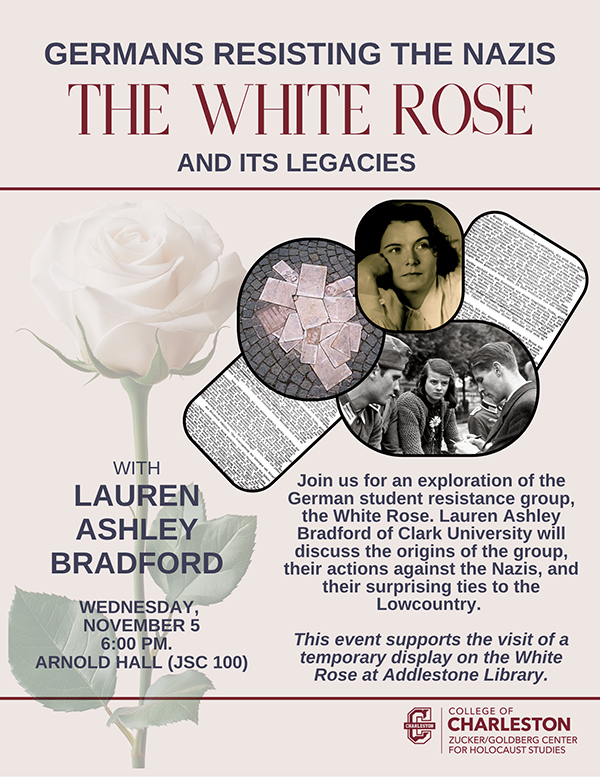
96 Wentworth Street
Charleston, SC 29424 United States
Identity "Passing" as a Jewish response to persecution during the Nazi period, 1933-1945; Dr. Hana Green will discuss her research on Jews who "passed" as "Aryan" to escape Nazi persecution across Central Europe, from 1933 to the months after the end of the war. Her talk will scrutinize the scale, migratory nature, and the diversity of "passing practices" in the struggle for survival.
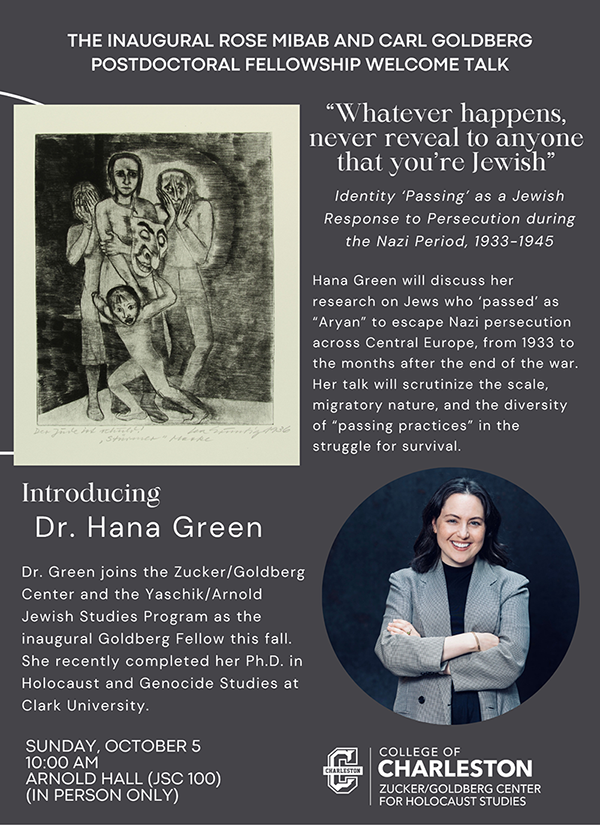
"Surreal Geographies" recovers a forgotten archive of Holocaust representation. Examining art, literature, and film produced since 1945, Kathryn Brackney shows how the Holocaust has developed into a figure for the destabilization and reformulaton of the category of humanity and the problem of mourning across dfference.
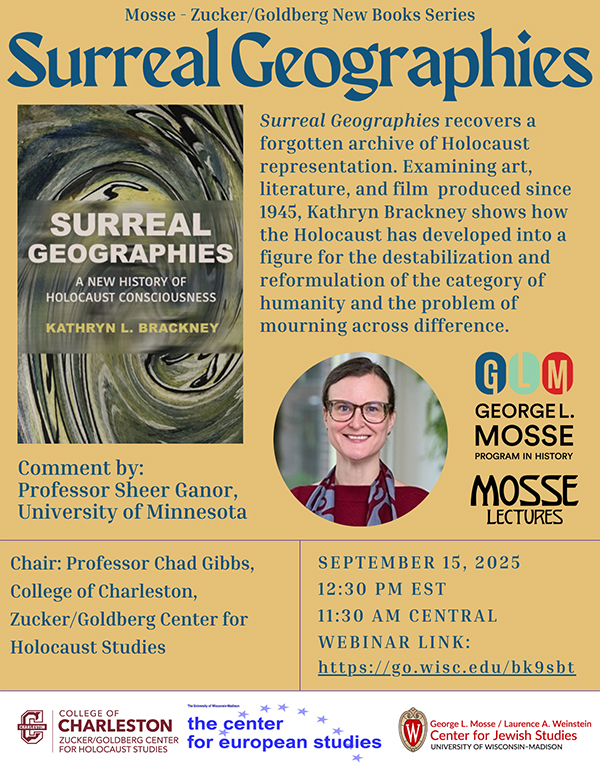
96 Wentworth Street
Charleston, SC 29424 United States
In a moving blend of family history and scholarship, Tracey Owens Patton’s “A Nation’s Undesirables” tells the story of her mother and aunt, Lore and Lilli. Two of thousands of children born to white German women and Black American men after World War II, the twins moved to the United States at age seven. Patton takes up the twins’ story and their reckoning with their mixed-race, Black Germand identity to disrupt standard narratives around World War II, Black experience in Germany, and race and adoption.
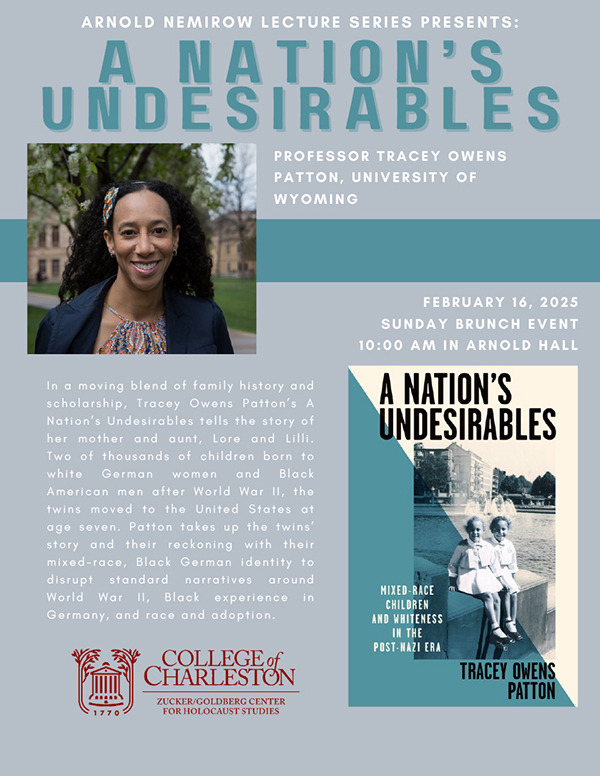
College of Charleston
Charleston, SC 29424 United States
In this talk, Dr. David Slucki examines the long-term impact of the Holocaust on survivors, their children and grandchildren, and how the ways we think about these impacts have changed over time and generations.
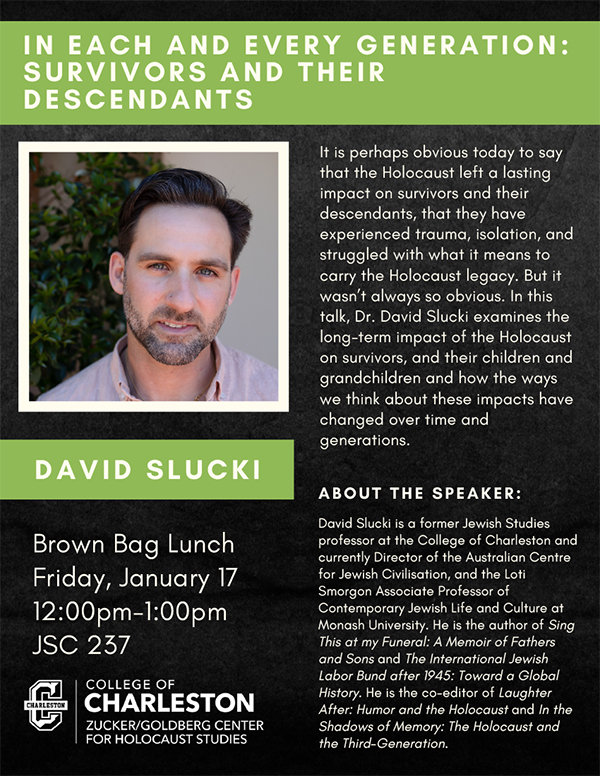
96 Wentworth Street
Charleston, SC 29424 United States
This book provides a staggering and profound reassessment of the relationship between knowing and not knowing, and asks us to confront the timely warning that we in our modern, interconnected world, can all become witnesses.
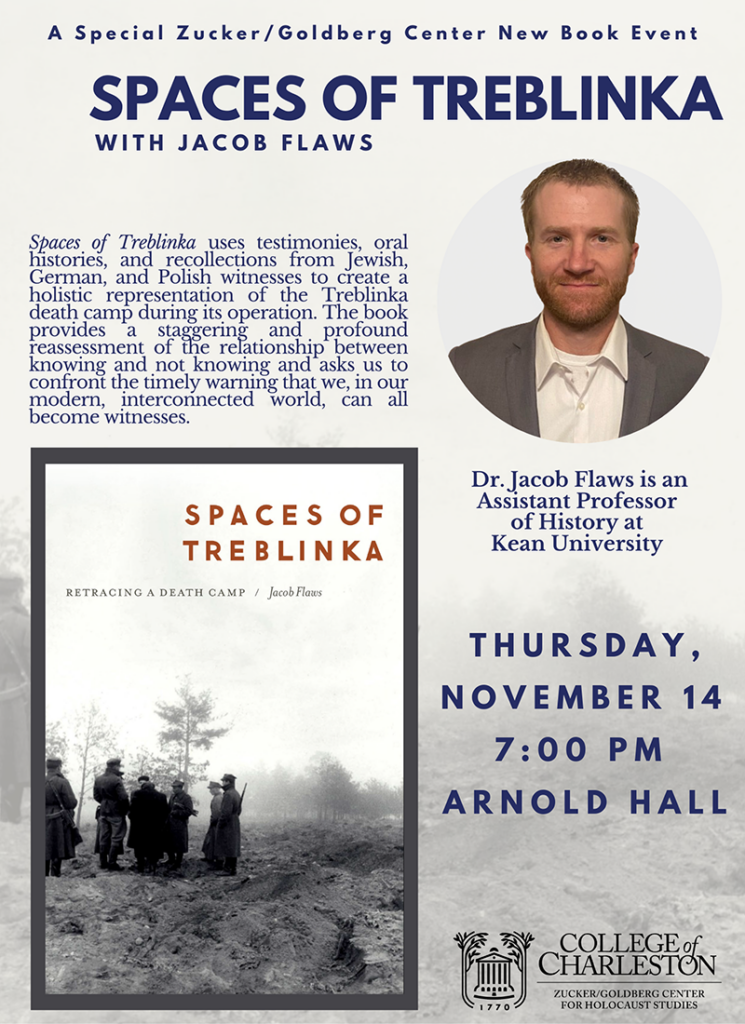
This new book argues that race was central to the development of queer movements in the aftermath of gay liberation.
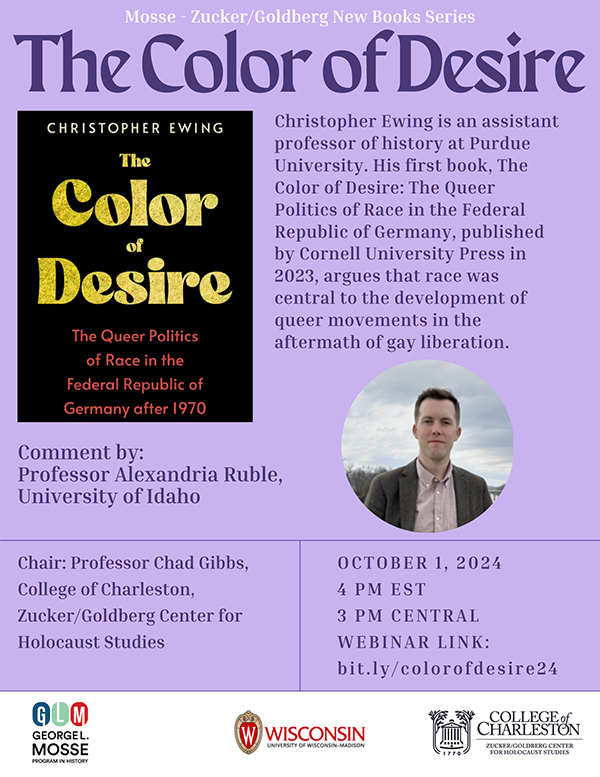
96 Wentworth Street
Charleston, SC 29424 United States
Professor Tracey Owens Patton of the University of Wyoming shares the story of her mother and aunt, two of thousands of children born to white German women and Black American men after WWII.
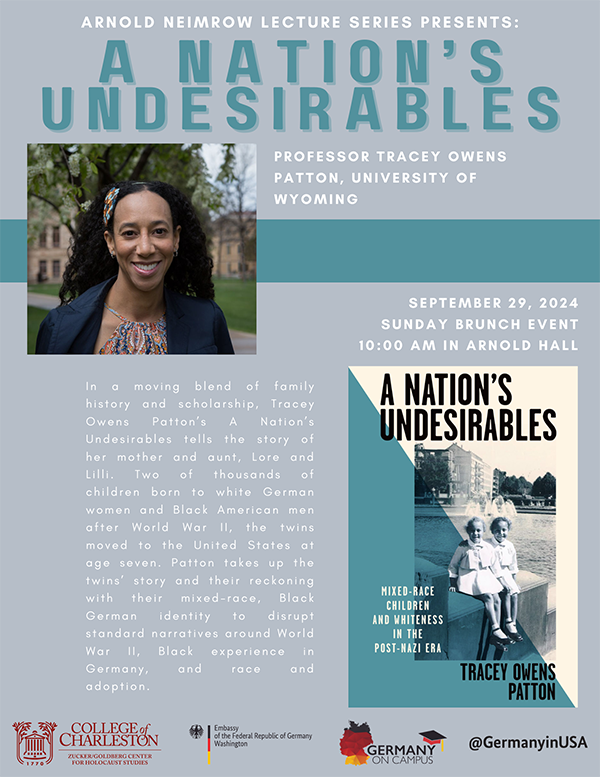
96 Wentworth Street
Charleston, SC 29424 United States
The program will start at 10:00 am, with brunch served at 9:00 am.
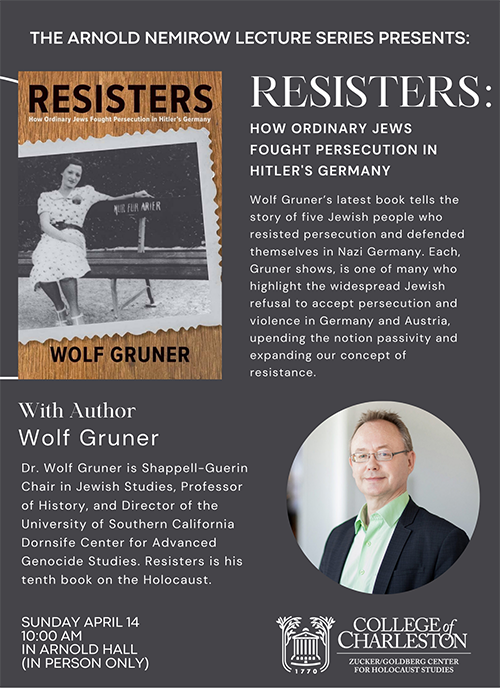
Online – registration required.
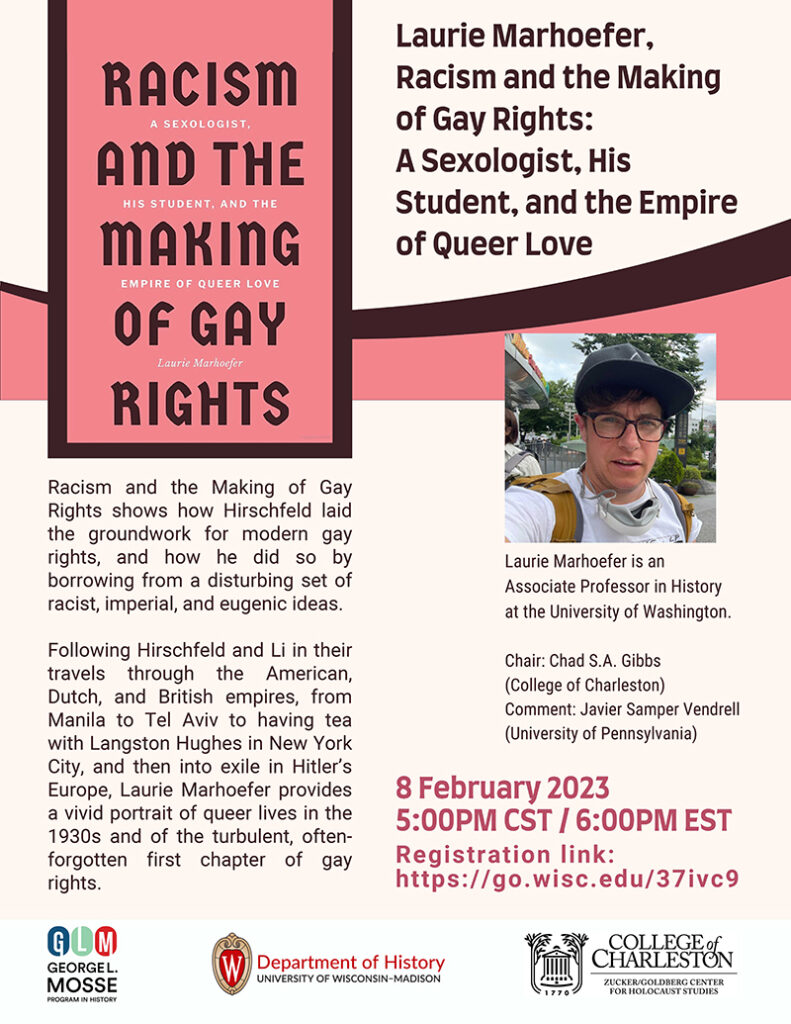
1956d Maybank Highway
Charleston, SC United States
In honor of International Holocaust Remembrance Day, please join the Charleston Jewish Film Festival and the Zucker/Goldberg Center for a Screening and discussion of the film Four Winters.
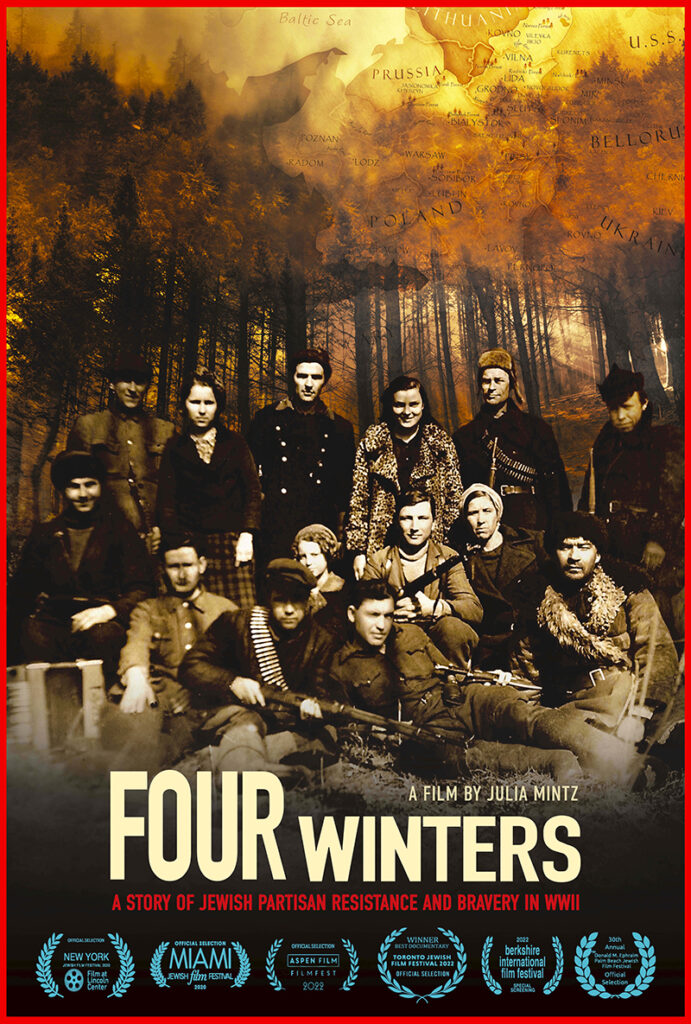
96 Wentworth Street
Charleston, SC 29424 United States
Dr. Sarah Cushman is Director of the Holocaust Educational Foundation and Senlor Lecturer in History at Northwestern University. Her current research project Women in Auschwitz is under contract with Indiana University Press.
